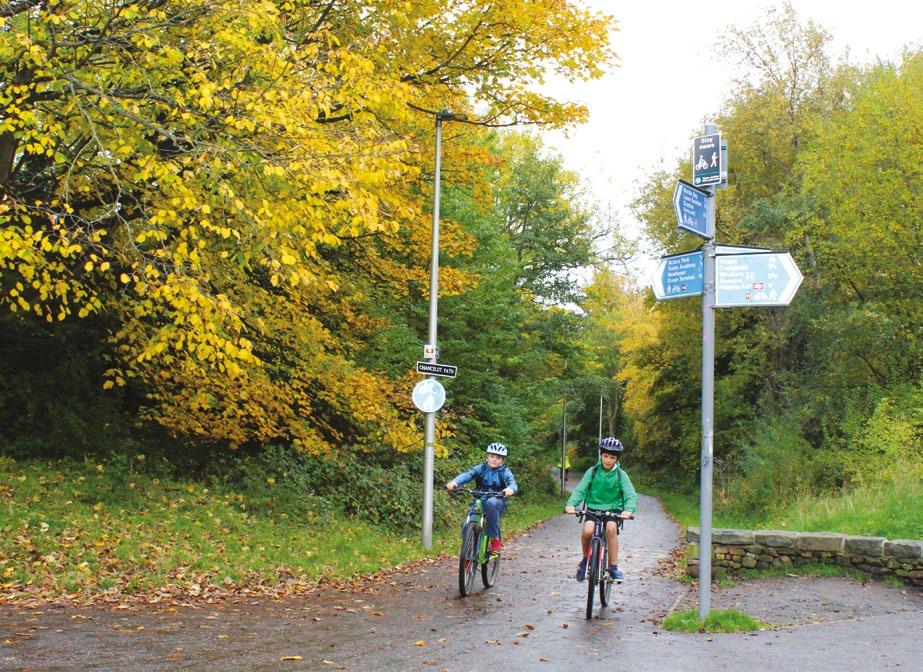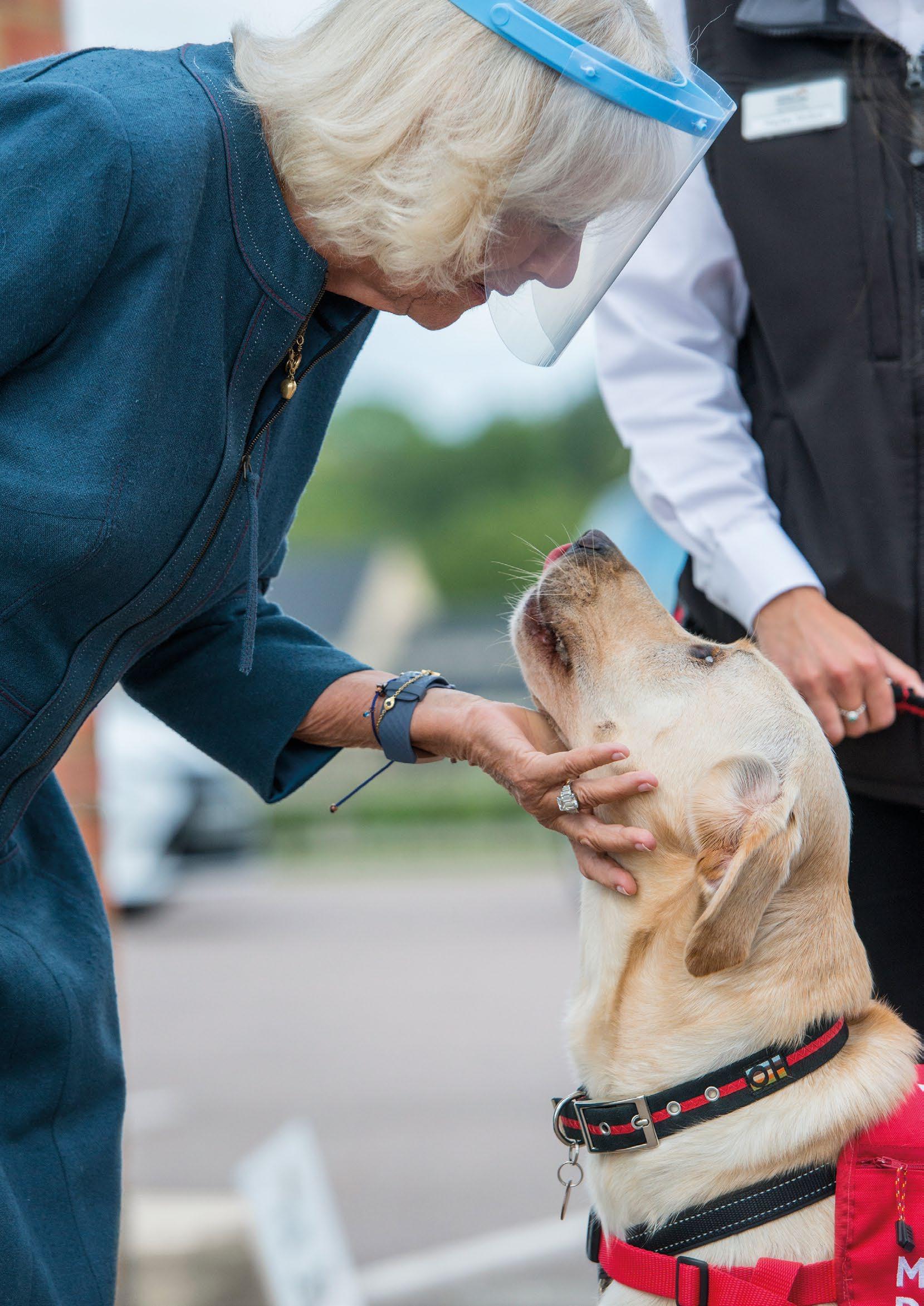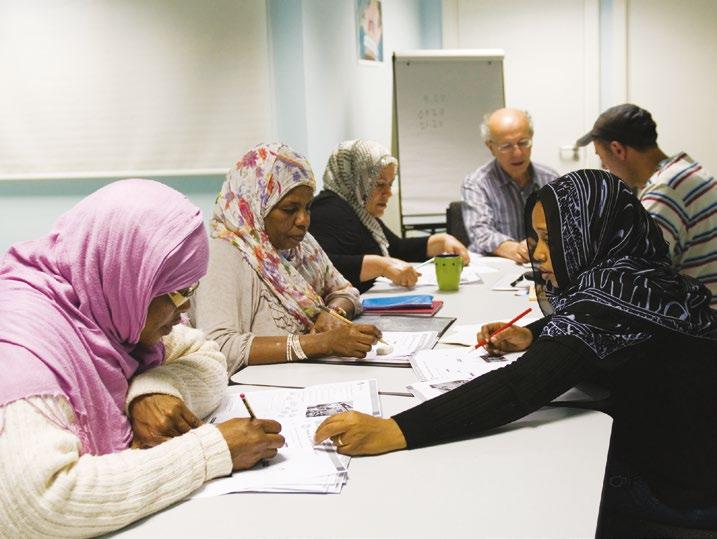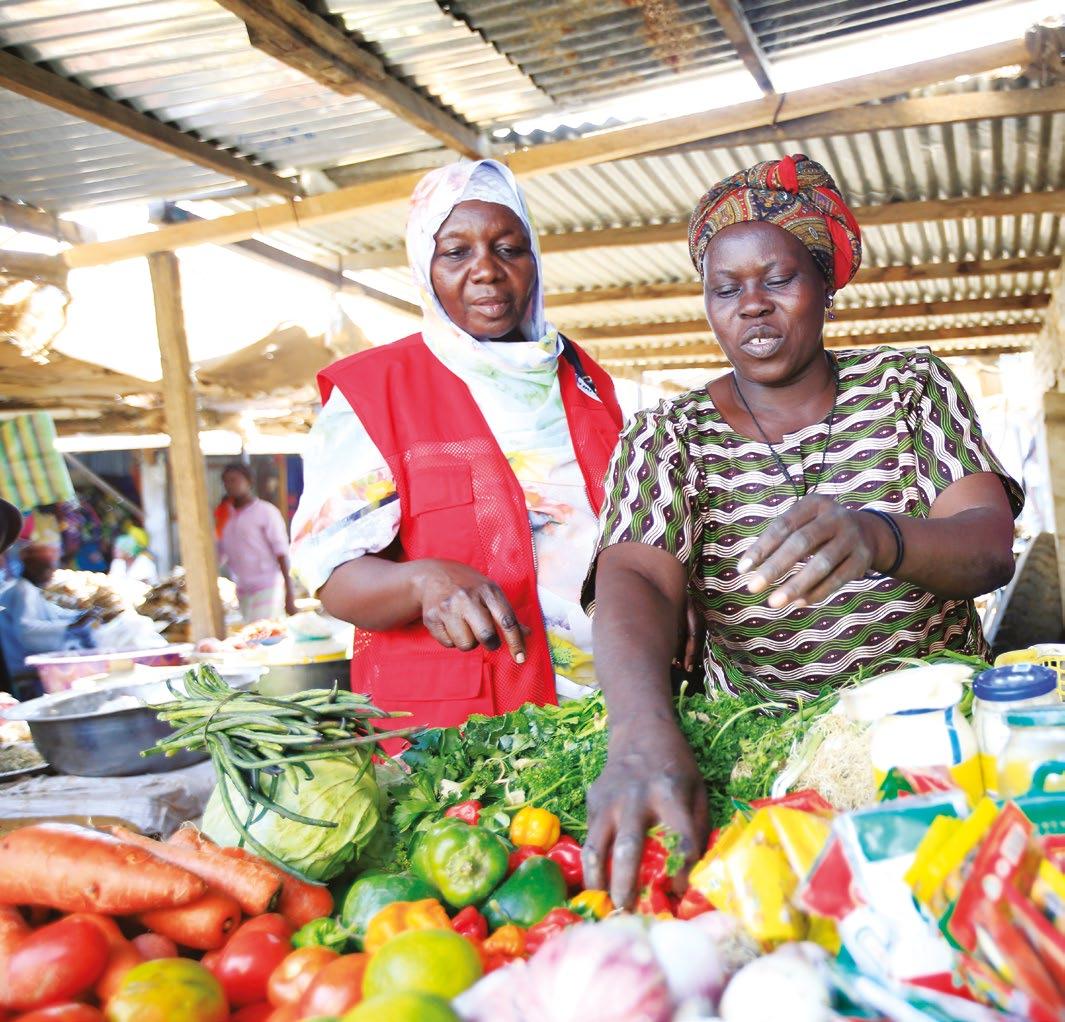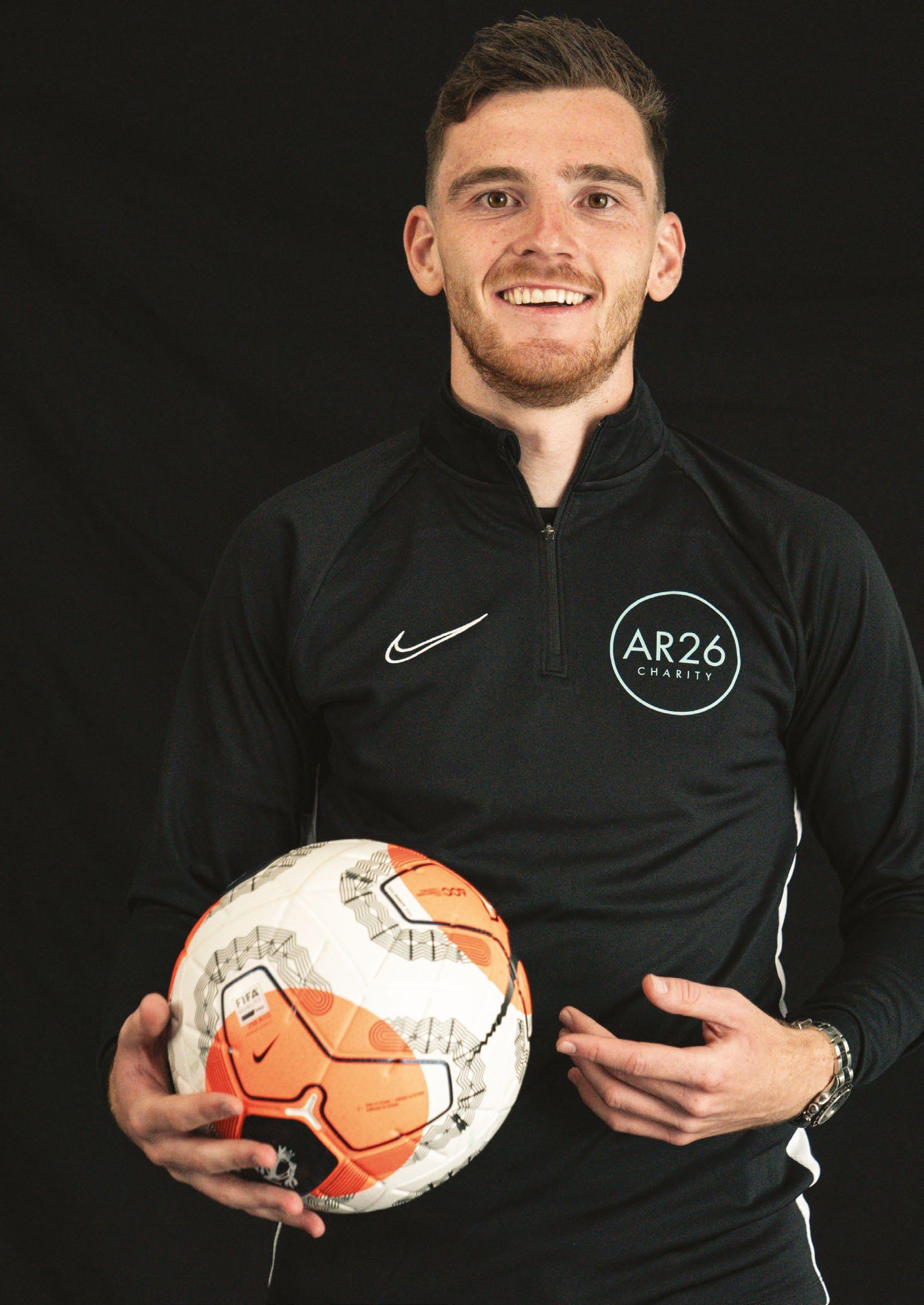
4 minute read
Playing for good
from Giving Magazine 2020
by cityam
A long overdue review of the Gambling Act must make a clear policy distinction between betting and charity lotteries, argues Carolyn Harris MP, Chair of the Gambling Related Harm All Party Parliamentary Group.
WITH 79% of UK adults owning a smart phone, it’s easier than ever to gamble at the touch of a button. This, along with increased advertising and promotion and widespread access to fixed-odds betting terminals, sees gamblers in the UK sustaining an industry worth £14 billion.
The online nature of modern gambling has changed the landscape, making it much easier to play responsibly. Yet for an increasing number of people, it can quickly escalate into problem gambling.
I have made it clear many times that I am not antigambling per se. I love a game of bingo, I’m happy to have a flutter on the Grand National and I support the great work of charity lotteries in raising funds for good causes.
My concerns focus on the irresponsible and socially damaging practices of betting companies which drive problem gambling and take advantage of vulnerable people. These include the lack of online gambling stake or deposit limits.
The role of our All Party Parliamentary Group is to ensure the sector operates fairly and in a way that protects potentially vulnerable people. Our clear ask is that the Government undertakes the long overdue review of the Gambling Act it has committed to do – in this Parliament.
A root and branch review cannot come quick enough. The gambling industry has been governed by legislation which is simply out of date and not fit for purpose in an era of online gambling.
We need to make the important distinction between betting – especially online betting – and charity lotteries. ”
In contrast to the under-regulation of the betting sector, the charity lottery sector has had to wait years for simple reforms of the law which will help it raise more for charities – the lifeblood of our communities.
That is why I was delighted that, at long last, we saw changes to the law on charity lotteries earlier this year – changes that can mean more vital funds for local charities, such as air ambulances, hospices and community groups.
I know from my own constituency of Swansea East that these types of organisations make a huge difference, especially during the exceptionally tough fundraising environment we’ve seen throughout 2020.
There is a huge difference between spending £10 a month on a subscription lottery that raises funds for charities, and spending hundreds of pounds in a matter of minutes via online betting, with the profits going to private shareholders.
That is why, when a review of the Gambling Act takes place, we need to make sure we are playing for good for a host of reasons, making the important distinction between betting – especially online betting – and activities such as charity lotteries.
My ask is that the Government remains aware of these differences and differentiates policy accordingly. By doing this, they will both safeguard customers from the damaging practices of the betting sector, and help safeguard the financial future of the thousands of charities and community groups who do so much to build a fairer, better society. ■
Every day, lifesaving missions are flown across the UK by 21 charity air ambulance organisations such as Scotland’s Charity Air Ambulance (SCAA). Players of People’s Postcode Lottery have helped SCAA to expand its vital service thanks to a £300,000 Postcode Heroes Trust award.
Magic Breakfast: No child too hungry to learn
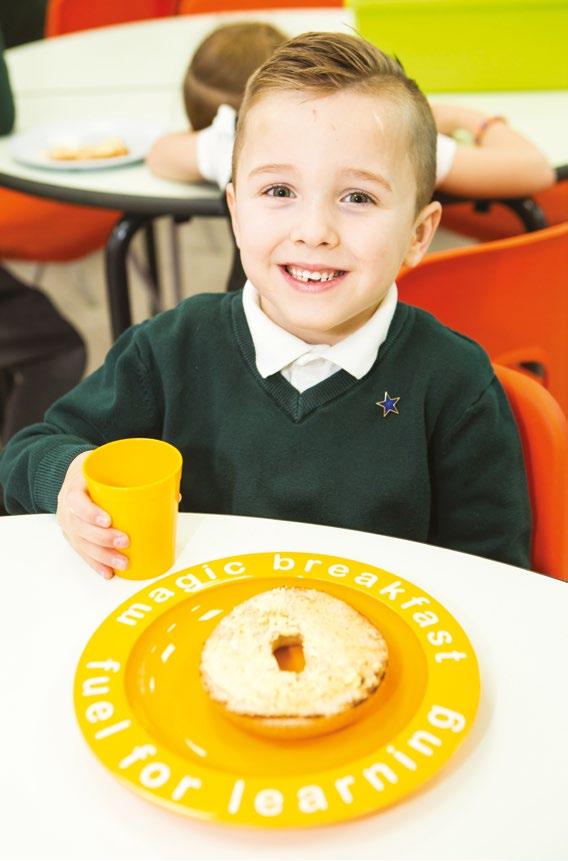
“Many of our children wake up in homes with no food, because, through no fault of the families, there is a daily struggle with low family income, high living costs, benefit problems and family misfortune. Before Magic Breakfast it was not uncommon for our children to complain of hunger pains, or visibly act out, because they hadn’t eaten since their school lunch the day before.” Nicola Noble, Co-Head Teacher, Surrey Square Primary School, Southwark
With 2.3 million UK children living in households with food insecurity, the issue of child morning hunger is not new to Surrey Square Primary School. As the teachers know too well, its impact can be substantial, causing children to be lethargic, unhappy, disruptive, and unable to concentrate on their learning.
To combat this hunger, Surrey Square is one of 480 schools across England and Scotland who have partnered with Magic Breakfast – a charity providing free nutritious breakfasts to 48,000 children at risk of hunger each morning, ensuring they are able to start their day feeling fed, settled and ready to learn. OUR IMPACT
During school closures, pupils at Surrey Square % of teachers who saw an were able to continue improvement as a result of receiving Magic Breakfast children eating a Magic thanks to the charity’s take- Breakfast (summer term 2019): home breakfast packs consisting of beans, bagels, Educational attainment 82% cereal, porridge and milk Attendance at school 84% vouchers. As the school’s Concentration in class 92% Co-Head Nicola Noble describes, “the packs were a lifeline for the increasing number of families unable to put food on the table”.
Now that schools have reopened, Magic Breakfast has renewed importance. Child food insecurity has been exacerbated by Covid-19 and many children are significantly behind in their learning. Magic Breakfast has a crucial role to play in ensuring that all children at their partner schools have the fuel they need to be able to access their learning and to reach their potential.
PLEASE SUPPORT US
If you would like to prevent child morning hunger and help children succeed, please support us today:

